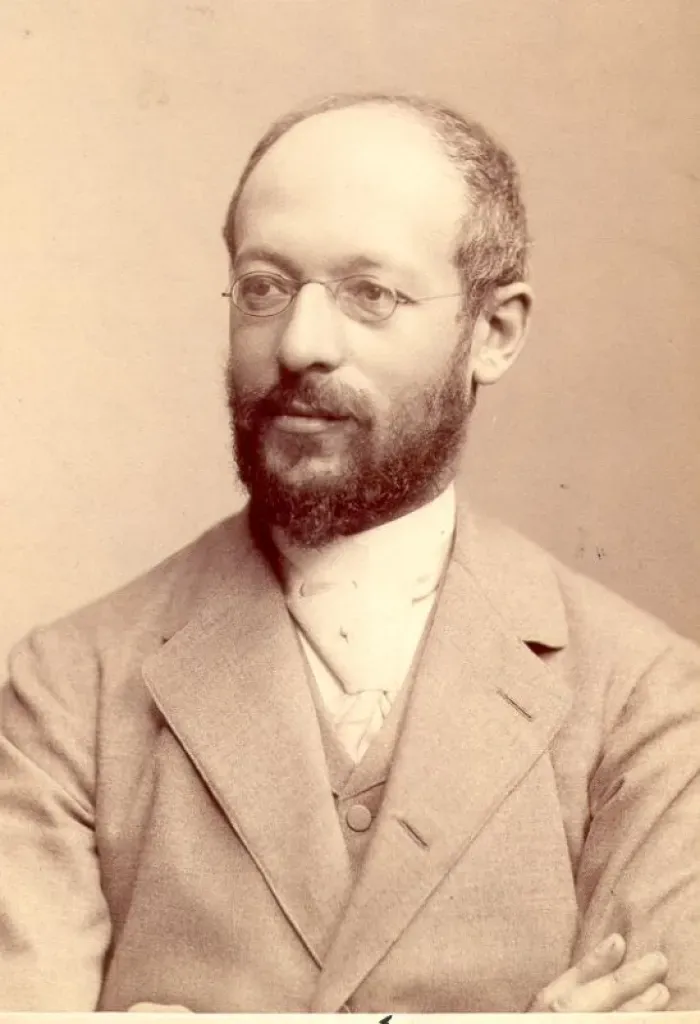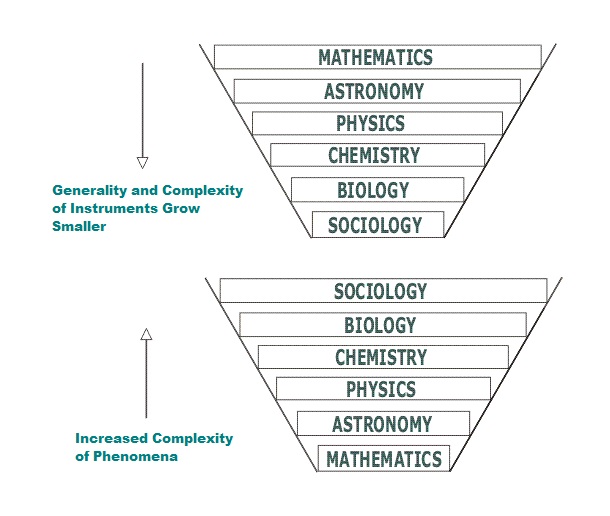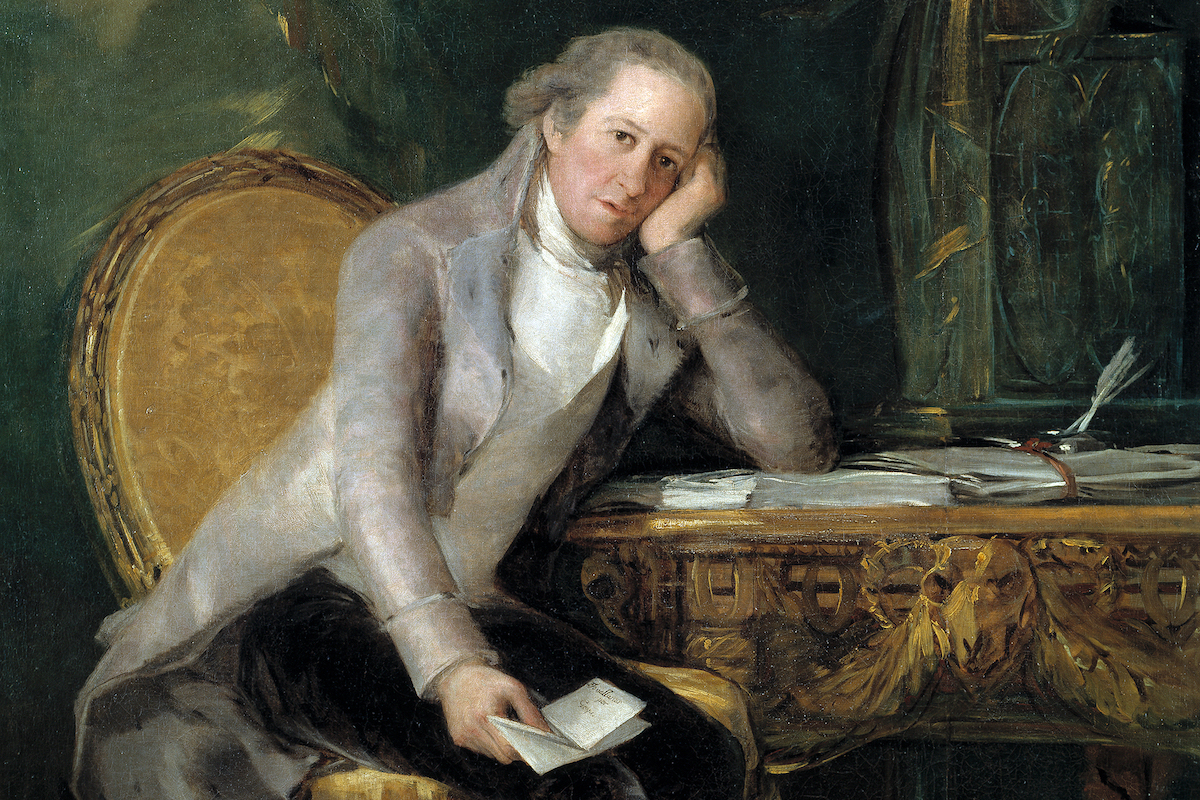Education
The Decline of the Humanities and What To Do About It
Assessing the genesis of these problems requires a broad historical background understanding, because sociology stands at the nexus of the social sciences and the humanities.

It is edifying to note that recent data published by the National Association of Scholars shows Democrats outnumber Republicans at elite liberal arts universities in the United States by a ratio of 43:1 within Sociology. So intellectual homogeneity is clearly a major issue in the United States, and it is also safe to infer that similar left/right voting patterns are present in the Humanities departments at Australia’s top universities—though data has traditionally been hard to collect. Some academics choose to play down the significance of this, pointing to correlative data regarding education levels and interests, the thought being that this is somehow a suitable excuse for an atrophied attention to foundational subject matter.

These problems run deep in the field of sociology. Assessing the genesis of these problems requires a broad historical background understanding, because sociology stands at the nexus of the social sciences and the humanities. The earliest sociologists were usually classed as philosophers. This was because they were theorists interested in drawing out generalisations about the human condition, with a practical/analytical bent—see for instance Simmel’s Philosophy of Money or On Individuality and Social Forms. Among their ranks is Auguste Comte who is widely regarded as its primary progenitor. His concept of sociologie was defined broadly by his work The Course in Positive Philosophy. For Comte’s theory of social evolution, the search for truth progressed in three stages.
First, a theological stage, which was underpinned by the belief in God or gods, blindly believing the creeds of their ancestors. Emphasis added as this will become relevant later. Second, there is the metaphysical stage which was defined for Comte by the French Revolution and the erection of conceptually monolithic principles such as universal human rights. Third, where Comte argues for what this author will term a Hegelian synthesis, is the scientific or ‘positivity’ stage where thought becomes industrialised, i.e it becomes an intellectual stance that emphasises observation and classification of data and facts. Uniformities in social phenomena can thus be observed and dissected.
What results from Comte’s positivism is both a bottom-up and top-down movement of principles which can be applied to nearly every facet of life as outlined below:

In Comte’s words, this ‘social physics’ is malleable to almost any field of inquiry and this adaptability has coincided with sociology becoming a cornerstone of humanities/social sciences curricula. As a result, many sociologists in the academy would likely view their project as the ‘king-subject’ in some sense.
But rather than being a ‘king-subject’ sociology has veered towards being an intellectual pauper. This is because its evolution from a humanities-style discipline under Comte and Simmel, through to a social sciences-style discipline under Weber and Durkheim, was ultimately subverted by a range of academics from the 1950s onwards. Weber and Durkheim were instrumental in bringing empiricism to the sociological practice. As Steven Lukes writes:
Durkheim’s project in particular drew on the idea that:
‘‘’Social facts’ should be regarded by the sociologist as realities; that is, as having characteristics independent of his conceptual apparatus, which can only be ascertained through empirical investigation (as opposed to a priori reasoning or intuition ) and, in particular, through ‘external’ observation by means of indicators (such as legal codes, statistics, etc.), and as existing independently of individuals’ wills.’’
This view culminated in the empiricization of sociology based on foundational theory from Comte, Weber, and even, yes even, Marx.
Academics of the 1950s, ’60s, and ’70s, however, began to turn away from empiricism and return to theory once more. Writers such as Goffman and Mead pushed the idea of symbolic interactionism which is purported to be a “frame of reference to better understand how individuals interact with one another to create symbolic worlds, and in return, how these worlds shapes individual behaviors.”
In reality sociology became a vehicle for postmodern and poststructuralist theory with the study of power at its core. This preoccupation with power, through thinkers like Foucault and Baudrillard, is a long way from the sociology that Durkheim and Comte envisioned.
Georg Simmel (a founder of modern sociology) would be rolling in his grave. A quick study of the Sociology major in the 2018 University of Melbourne and Monash University handbooks reveals a number of flaws in their curricula that are unfortunately endemic in many humanities and social science majors at elite Western institutions. Sociology looms as an intriguing test case because its scope involves both the humanities and social sciences.
These flaws are various, but it is worthwhile to explicitly name the three of greatest import.
- Subjects that are foundational in nature (of which there is one) such as Modernity: Foundations of Sociology (SOTH20002) and based on classical theory, are offered in the penultimate or final year as an elective—depending on whether you pursue an Honours level degree.
- Contemporary issues are pushed to the fore, for example CRIM10001: From Graffiti to Terrorism and ATS1365: Introduction to Sociology which in particular invites students to study, “class, gender, age, culture, religion, and other structural factors play in shaping the lives of everyday people in society.” With a strong emphasis on identity politics as the course progresses, little emphasis is placed on the core values that have defined Western civilisation.
- Breadth subjects—or, more rightly, what should be breadth subjects—frequently do not meaningfully contribute to a deep grasp of a particular field and actually inhibit proficiency in your chosen field. See the interplay between Gender Studies and Sociology majors in both the University of Melbourne and Monash University. Multi-discipline styled majors actually detract from being an expert in Sociology.
- As an aside, for an in depth look at how History is taught in Australia, the data is available here.
A disclaimer: these flaws are not meant to impugn the passion with which Arts are taught at Melbourne University or target any particular faculty member. Rather, the point is to draw out systemic issues in tertiary education in Australia, in particular within the humanities and social sciences.

But crucially, the aforementioned flaws in the Sociology curricula at the University of Melbourne and Monash University reveal that the sociological project has complacently strayed from its original intent, and in many ways returned to its theological stage, under the guise of a supposed affinity for positivism. In essence, its project is now sacred. Applying this conceptualization of sociology in his new book The Sacred Project of Sociology, Christian Smith writes that:
American sociology as a collective enterprise is at heart committed to the visionary project of realizing the emancipation, equality, and moral affirmation of all human beings as autonomous self-directing, individual agents (who should be) out to live their lives as they personally so desire, by constructing their own favoured identities, entering and exiting relationships as they choose, and equally enjoying the gratification of experiential, material, and bodily pleasures.
On first reading this perhaps sounds like a noble goal. However, it is no such thing. Sociology was designed as the social science grounded in a philosophical approach which is in turn applied to social phenomena. Definitely not an emancipatory endeavour in moral affirmation.
Through Christian Smith’s meta-investigation of the ‘sociology of sociology,’ the troubling dynamics of the modern sociology academy are revealed. He continues:
To the more traditional liberal commitments to freedom and equality, sociology’s sacred project also adds the centrality of moral affirmation . . . It is not enough simply to set people free from oppression and to treat them as equals. Everyone deserves to be morally affirmed by everyone else.
But not everyone is deserving of moral affirmation. Academics that are not committed to diversity of intellectual inquiry or sound methodology are one group, to be sure, that does not deserve moral affirmation.
The publication of various statistically oriented studies in sociology provide valuable insight and follow an empirical process. But, even still, academics in sociology are also increasingly susceptible to the confirmation bias taking place within the sociological academy.
Recent instances of rogue ideas that run counter to the ‘emancipatory’ regime, such as a study by Dr. Linda Waite, that highlighted the longitudinal benefits of marriage for both partners, are quickly ousted from the American Sociological Association’s (ASA) confines. Her tenure as an officer of the ASA was ended over her tendency to express controversial views such as, “Marriage may provide individuals with a sense of meaning in their lives … and a sense of obligation to others, inhibiting risky behaviors and encouraging healthy ones.” In 2012, Dr. Mark Regnerus was excoriated for suggesting that an intact biological family unit correlated well with positive outcomes for young adults. Given that a federal judge weighed in on his research with much opprobrium, the now typical chilling effect on research has ensued. This defect flows from the academy, but has additional roots elsewhere in the education industry.
Looking at the humanities/social sciences academy through the lens of industrialized education, the problems run to the core of the current educational environment. Chiefly, this is manifested in a complacency on the behalf of administrators, who are far removed from the subject matter and are over-reliant on metrics. These metrics take the form of student satisfaction surveys, attendance of tutorials, and demand for enrolment in certain subjects. Difficult courses with challenging subject matter are generally avoided by students and thus discouraged by administrators and even hiring processes.
Sympathy must be extended to fastidious academics that must navigate the bloated bureaucratic apparatus which provides the ideal petri dish in which the mould of academic decay can flourish. Perversely, the most recent financial statements of the University of Melbourne University reveal that there is a near 1:1 ratio of administrators to actual working academics.
Nonetheless, modern academics are themselves chasing numbers. Enrollment in their courses secures their continued employment, eventually leading to desired research grants that build the ‘esteem’ of the institution. With a mandate to please rather than challenge and educate, the new generation of academics often pushes further ahead into scholarship that is trendy and hollow. This desperation is only amplified by the slow abolition of tenure in Australia over the past three decades. Thus, anaemic humanities and social science curricula proliferate.
In his review of Christian Smith’s book in First Things, Richard Spady shares an example of how this works:
In my experience, when a weak paper with the right message is presented in a faculty of graduate seminar, the attitude is this: This paper has its heart in the right place, and we know [my emphasis] its conclusion is true, so it’ll be OK after a little work on the methodology.
This is a patently backwards process that threatens the very nature of academic inquiry. Academics should be getting the methodology right from the start, basing it in foundational theory and then making conclusions. When the conclusion is a foregone, you in essence have a theological approach to your work. Faith in ideology first, reason second. Although it may sound like hyperbole, we have now truly moved into a new Dark Age of sociology, where texts with the right message trump free inquiry. Administrators are the icing on the cake for this academic confectionary, encouraging any paper that will draw citations to be published, while major journals facilitate the quest for funding.
The symbiosis/parasitism evident in this relationship is its own self-fulfilling prophecy. If you always try to appeal to the lowest common denominators in your course offerings, you will wind up with lowest common denominator graduates. Graduates that are unprepared for the world beyond the classroom and disillusioned with a society that has yet to catch up with a coddled worldview.
Understanding the problems within humanities curricula in Australia is the first step to solving this growing problem. Solutions are various, but perhaps the best answer comes from the centre-Left academic Jonathan Haidt. He proposes what this author sees as a market-based solution to academic decay in the social sciences and humanities. Just like any business has a mission statement, so do universities.
Haidt’s proposal is that, in the social sciences and humanities, schools should be explicit in their pedagogy: either they are for a search for moral affirmation (read: social justice) OR they are committed to diversity of intellectual enquiry, empiricism, the search for truth and objectivity. By making this distinction explicit, universities eliminate a large portion of the endemic problems that have arisen over the past few decades in the social sciences and humanities.
This market-based solution would be a seismic shift in how the social sciences and humanities are taught and even promoted by administrators. No longer would academics be forced to self-censor in departments that don’t value academic inquiry; they could choose the institutions that suit their objectives. Students (and perhaps more importantly their parents) could choose where to spend their money, with a better idea of what they are actually getting for it.






